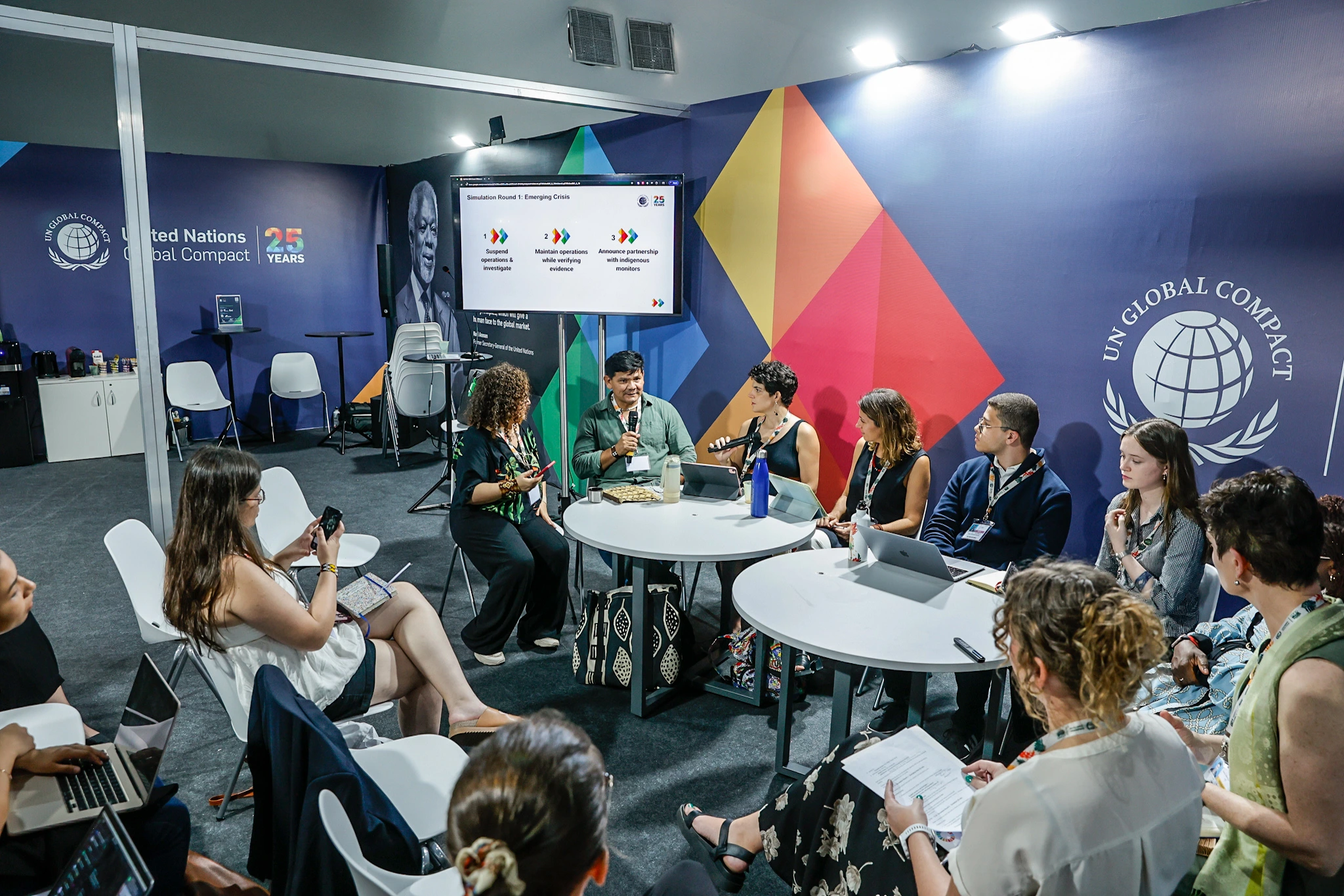Access

- Submit your institution’s Sharing Information on Progress (SIP) Report
- Access SIP reporting across institutions
Access

Access


Members of the PRME Secretariat were delighted to join climate activists, negotiators, and UN delegates at COP30 in Belem, Brazil, representing PRME and its mission to advance responsible management education worldwide. On Education Day, PRME hosted an innovative session, “The Future Boardroom: Leading Through Climate Crisis,” at the UN Global Compact Pavilion.
The session invited participants to step into the boardroom of 2030 through a live simulation. Panelists acted as the board of a fictional company facing a climate-driven crisis, making real-time decisions while balancing profit, people, and planet. Attendees engaged as shareholders, employees, or civil society representatives, exploring how diverse perspectives, from youth and indigenous leaders to academics and business professionals, can lead to better outcomes. Key takeaways underscored the essential role of education in preparing future leaders for complex, high-stakes challenges.
PRME also proudly sponsored two PRME Student Regional Leaders, Bassel El Deghaidy from Egypt who participated as an Egyptian Youth Negotiator for Article 6 of the Paris Agreement and the Global Stocktake (GST) at COP30, and Alimkhan from Kazakhstan who participated as a youth climate activist for his region, to COP30. Bassel reflected on his engagement , noting: “Engaging directly with the climate process at COP30 highlighted how essential it is to create space for youth perspectives within global decision-making. A key takeaway for me is that when young people contribute their ideas and priorities, it helps strengthen ambition and ensures that climate action remains fair, inclusive, and responsive to future generations. This experience reaffirmed the importance of climate education and youth empowerment as core pillars for advancing effective and sustainable solutions worldwide.”
Alimkhan shared, “I am here to ensure that the perspectives of youth from Kazakhstan and Central Asia are reflected in the decisions that will define our future. Being at COP30 allows me to plan the next steps, bringing knowledge back home, strengthening our advocacy, and ensuring that civil society and young people from our region stay engaged in the global climate conversation. For us, this is not all about texts, but about real action that will impact people and ecosystems, action that must provide clear pathways to phase out fossil fuels, strengthen climate education, and ensure climate finance truly reaches communities.”
Meanwhile, Cheyenne Metz, PRME Senior Manager, highlighted green employment opportunities as a panelist at a session with Ibredrola at the UN Global Compact Pavilion, commenting: “The green transition represents one of the most significant opportunities for youth in decades. It is not only creating new jobs, but also redefining what work means—integrating purpose, innovation, and sustainability at its core.” Kristina Mincheva, PRME Coordinator, represented PRME at the Children and Youth Pavilion, showcasing PRME Students programmes and observing that: “Academia must stay closely aligned with the rapidly evolving green job market to ensure students gain not only theoretical knowledge but the practical, future-ready skills demanded by the green transition.”
Beyond hosting sessions, the PRME team attended discussions on topics including decarbonizing historic campuses, climate action by universities, and media integrity in sustainability, gaining insights and connections to further the mission of responsible management education.
The week underscored that bold climate action depends on the collaboration between academia, business, and civil society, reaffirming PRME’s commitment to educating leaders who can accelerate the transition to a sustainable, just, and climate-resilient future.